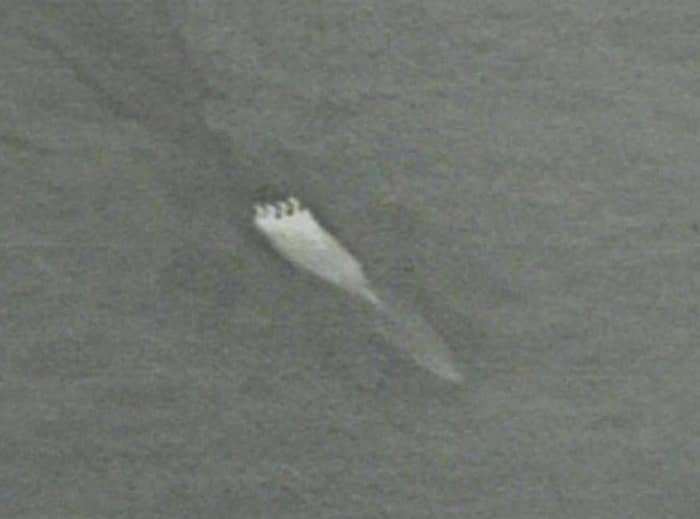If at first you don’t succeed — maybe don’t try again.
A Colombian man has been sentenced to federal prison after being caught for the second time in five years driving a homemade, semi-submersible vehicle known as a “narco-submarine” carrying thousands of pounds of cocaine.
Federal prosecutors say Jose Rosario Segura Balentierra, 35, was one of four men caught aboard the low-slung craft when it was intercepted by a Coast Guard cutter in the Pacific Ocean in August 2020.
When first encountered several hundred miles out to sea off the Mexican coast, prosecutors say Coast Guard officers ordered the vehicle to stop, but the crew kept going in an attempt to evade the pursuing ship.
“‘The Pacific Ocean is not a freeway for drug traffickers.‘”
The hull of the unregistered craft, painted dark green and bearing no flag from any country, was mostly propelled under the water line when it was moving, while its engines sat above the surface.
The Coast Guard crew then fired warning shots off the submersible’s bow, but the drivers still didn’t stop, according to court documents. The Coast Guard then fired shots into the four outboard motors that were powering the craft, but were only able to make it stop when an officer jumped aboard the vessel and disconnected its fuel lines.
Once onboard, the Coast Guard found two-to-three feet of water inside the hull of the submersible, suggesting the crew had tried to scuttle the ship and let its cargo sink to the bottom of the ocean, prosecutors said.
Coast Guard officials later pulled out some 2,000 kilograms (4,400 pounds) of cocaine packed in bundles. Investigators estimated the approximate street value of the load at $ 35 million.

This image shows the ‘narco submarine’ while it was partially submerged. (Department of Justice)
Balentierra pleaded guilty in July to possession of cocaine with intent to distribute and operation of a semi-submersible without nationality. He was sentenced to 16 ½ years in prison. His three co-defendants also pleaded, and were sentenced to eight years in prison.
In court filings, Balentierra’s co-defendants said they were out-of-work fishermen or experienced mariners who took the job after being offered money to move a boat to a different part of Colombia.
Each said when they discovered the craft was not a normal ship and was carrying drugs, they tried to back out but were told they could either do the job or they and their families would be killed. They said they were ordered to transport the cocaine to Mexico — hundreds of miles away.
Ballienterra offered no explanation in court filings as to how he got involved. A message left with his attorney wasn’t immediately returned.
Prosecutors say that just 18 months before the August 2020 encounter, Balentierra had been deported from the U.S. back to Colombia after serving 41 months for similarly being caught piloting a submersible vehicle filled with drugs in the ocean off of Mexico.
In that case, the crew had managed to scuttle the ship and it sank before Coast Guard officials could recover any drugs.
“The Pacific Ocean is not a freeway for drug traffickers,” said Randy Grossman, acting U.S. attorney for the district of southern California.
“The Coast Guard kept $ 35 million worth of drugs off our streets, and we will continue to patrol the maritime domain to fight against the trafficking of narcotics,” said Rear Adm. Brian Penoyer, commander of the eleventh Coast Guard district.
